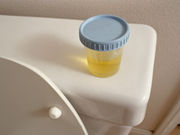Onsite tests have high specificity but lower sensitivity in asymptomatic pregnant women
FRIDAY, Aug. 12, 2016 (HealthDay News) — Onsite tests have high specificity for detecting asymptomatic bacteriuria among pregnant women, but sensitivity is lower, according to a review published in the September issue of Obstetrics & Gynecology.
Ewelina Rogozińska, from Queen Mary University of London, and colleagues estimated the accuracy of onsite tests to detect asymptomatic bacteriuria among pregnant women. Studies were included that recruited asymptomatic pregnant women to assess the accuracy of onsite tests, using urine culture as a reference standard. Data were included for 27 articles involving 13,641 women with test accuracy on nine tests.
The researchers found that urine dipstick was the most commonly evaluated test. The pooled sensitivity and specificity of nitrites detected by dipstick were 0.55 and 0.99, respectively, for detecting asymptomatic bacteriuria. The Griess test to detect nitrites had sensitivity and specificity of 0.65 and 0.99, respectively. Pooled sensitivity and specificity of 0.86 and 0.97, respectively, were seen for dipslide with Gram staining.
“The specificity of onsite tests is high; however, the sensitivity is not with the result that they will fail to detect a substantial number of cases of asymptomatic bacteriuria,” the authors write.
Full Text (subscription or payment may be required)
Copyright © 2016 HealthDay. All rights reserved.








